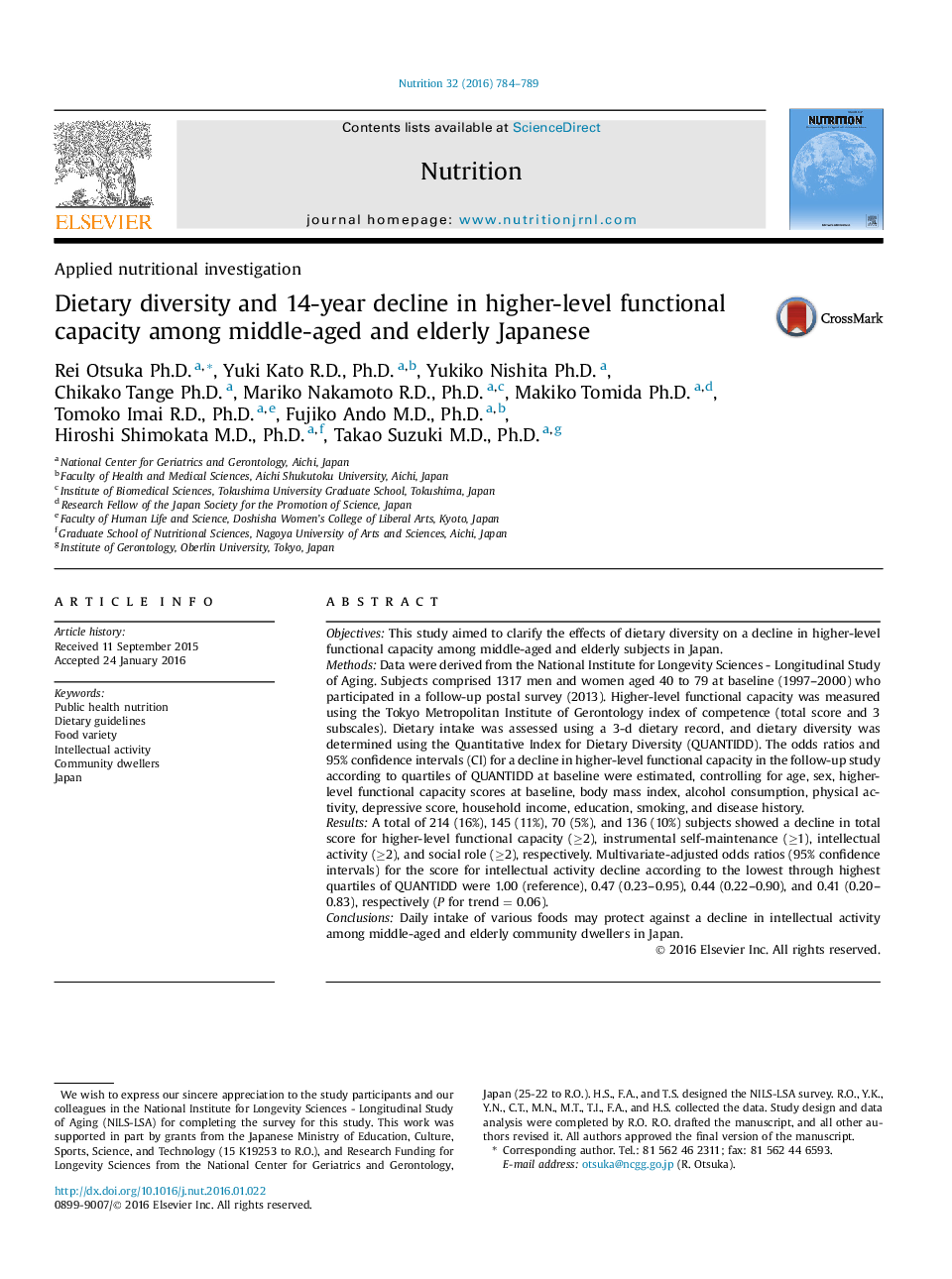| Article ID | Journal | Published Year | Pages | File Type |
|---|---|---|---|---|
| 6089107 | Nutrition | 2016 | 6 Pages |
â¢Subjects were 1317 community dwellers ages 40 to 79 y at baseline.â¢Higher dietary diversity decreased impairment of intellectual activity.â¢Consuming a diverse diet may protect against a decline in intellectual activity.
ObjectivesThis study aimed to clarify the effects of dietary diversity on a decline in higher-level functional capacity among middle-aged and elderly subjects in Japan.MethodsData were derived from the National Institute for Longevity Sciences - Longitudinal Study of Aging. Subjects comprised 1317 men and women aged 40 to 79 at baseline (1997-2000) who participated in a follow-up postal survey (2013). Higher-level functional capacity was measured using the Tokyo Metropolitan Institute of Gerontology index of competence (total score and 3 subscales). Dietary intake was assessed using a 3-d dietary record, and dietary diversity was determined using the Quantitative Index for Dietary Diversity (QUANTIDD). The odds ratios and 95% confidence intervals (CI) for a decline in higher-level functional capacity in the follow-up study according to quartiles of QUANTIDD at baseline were estimated, controlling for age, sex, higher-level functional capacity scores at baseline, body mass index, alcohol consumption, physical activity, depressive score, household income, education, smoking, and disease history.ResultsA total of 214 (16%), 145 (11%), 70 (5%), and 136 (10%) subjects showed a decline in total score for higher-level functional capacity (â¥2), instrumental self-maintenance (â¥1), intellectual activity (â¥2), and social role (â¥2), respectively. Multivariate-adjusted odds ratios (95% confidence intervals) for the score for intellectual activity decline according to the lowest through highest quartiles of QUANTIDD were 1.00 (reference), 0.47 (0.23-0.95), 0.44 (0.22-0.90), and 0.41 (0.20-0.83), respectively (P for trend = 0.06).ConclusionsDaily intake of various foods may protect against a decline in intellectual activity among middle-aged and elderly community dwellers in Japan.
